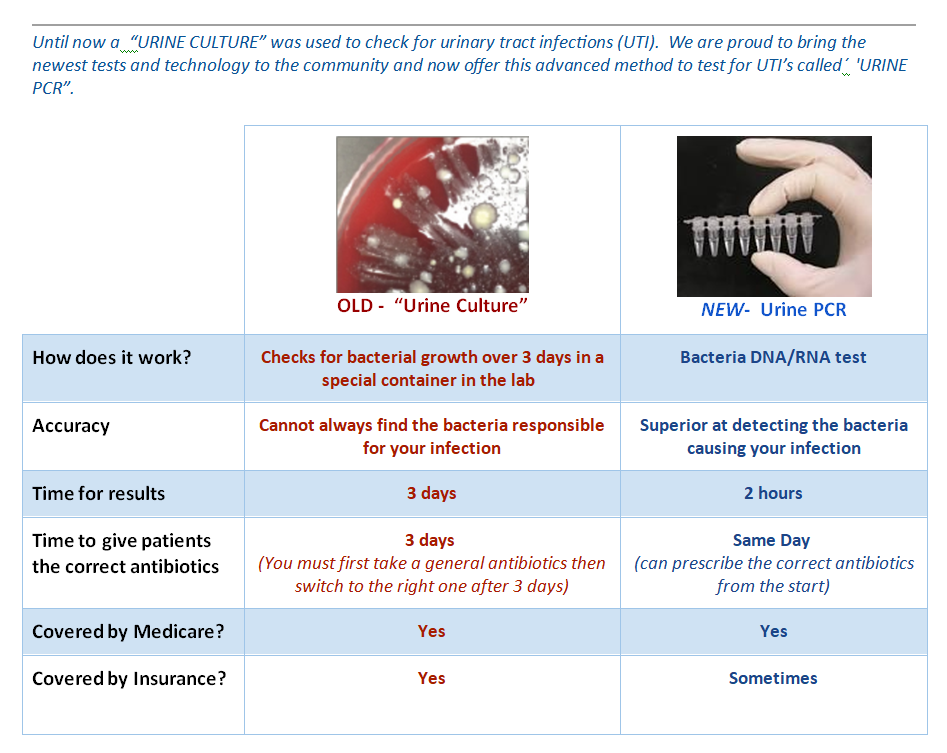UTI
What is a urinary tract infection (UTI)?
How can I tell if I have a UTI?
Some UTIs are asymptomatic. Symptoms of a UTI can also vary depending on where it is located. If you experience the following symptoms, you should seek immediate medical care from your specialist at EVU:
- Persistent urge to urinate
- Frequent urination in small amounts
- Burning sensation while urinating
- Urine that is cloudy, red, dark, or strong-smelling
- Pelvic pain, pressure, or discomfort
- Fever, chills, vomiting, or back pain (these may indicate a kidney infection)
- Discharge from urethra
What causes UTIs?
Some men and women are more prone to UTIs than others, sometimes as a result of genetics, a compromised immune system, or anatomical abnormalities. Other factors that may increase your risk for a UTI include:
- Constipation
- Menopause
- Frequent sexual activity
- Diabetes or another condition that lowers immunity
- Sexually transmitted diseases (STDs)
- Gut infections with E. coli and other organisms
- Use of spermicides
- Recent surgery on urinary tract
- Recent catheter placement
How are UTIs treated?
How can I prevent UTIs?
You may be able to minimize your risk for a UTI by adopting the following habits:
- Manage underlying constipation proactively
- Start cranberry extract and D-mannose in select cases
- Drink more water
- Fully empty your bladder at urination
- Urinate after sexual intercourse
- Find STD protection and birth control that is spermicide-free
Women may also:
- Seek treatment for vaginal atrophy with local hormone treatment or with the MonaLisa Touch treatments
- Wipe from front to back after urinating or defecating
- Change menstrual pads frequently
If you have one or more symptoms of a UTI, don’t delay. Contact your specialist at EVU by phone or with the online booking form.
Do you have a UTI? Urine PCR : A New DNA Test Can Now Help Us Find Out!

FAQ:
Multiplex PCR-based urine assessment is better and much faster at detecting bacteria in the urine compared to the traditional “Urine Culture”. *
*REF: INFECTIOUS DISEASES, VOLUME 136, P119-126, FEBRUARY 01, 2020
https://www.goldjournal.net/article/S0090-4295(19)30963-X/fulltext
